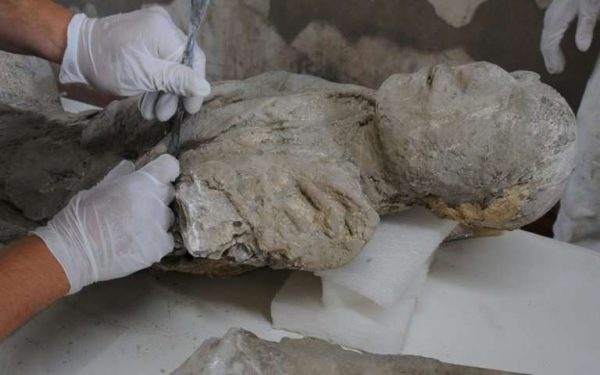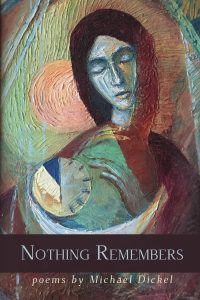
A poet is a societal surgeon whose poesy identifies, diagnoses, proscribes and acts accordingly. Their words are the scalpel and the sutures to expose, extract and treat the tumor that has been affecting and afflicting the social standing, the character, the stature and the integrity of the society beyond boarders. The tumor that has inflicted acute pain, threat to life, corruption, disfiguring and abject sufferance is then exposed for what it is. A poet is an experience of a society, they cannot be weaned off their social proximities, political dwellings and sensibilities, historical experiences, anthropological, archeological, cultural and spiritual identifications. The poet is part of the whole, but to effectively lender a fair bit of whom they are, must stand on principles of Truth through the lenses of metaphors and pays this truth in lines, whether society applauds or frowns upon. That’s the cross of a poet.
“I write this from storm clouds
tumbling over a mountain
like ghostly echoes of its
famous volcanic eruption.
I saw them whip by
the train’s window
and decided to ride
them, slipping out of
the passenger car unnoticed
just when you stopped my heart.
The rain of sound would form
meaning with lightning and thunder
if I had not fallen under the spell”
In opening the sizzling pot menu of his latest poetic gourmet, Nothing Remembers, Michael Dickel takes us to Pompeii. “The Return to Pompeii” is an intriguing political, anthropological, archeological and spiritual verse that embodies almost all patches of humanity. Pompeii is a story embedded in history coupled withanthropological richness, human loss, wonderment and spiritual demise.

The poet, chronicler cum Jewish cultural patriot is nostalgic. His pen is the heritage of his Jewish people. Michael Dickel as a poet of Jewish descent carries the DNA of resilience, spirituality, traditions and cultures that have stood the test of time and grind of millenniums
Take me back to fields’ wheat grown and golden…
Take me back to hot ovens in the kitchen,
the scent of hot bread
Bread is the metaphor of life that comes from wheat which grows from the soil; the soil that made the flesh of men, and that some day, shall lay claim to it. The repetition of the phrase “Take me back” in the poem “Following” is a symbol of completing a circle which embodies birth, birthright, identity, growth change and death. Both the poet and the poem are prophetic. They foresee the future generations retracing back to their roots and yearning to identify with the light that their forefathers carried. The poem is a revelation that awakens the current generation to embrace that which was of light, life and identity. The poet, chronicler, cultural patriot protests to be returned to realities and complexities that shaped him from tenderness into maturation. Michael Dickel carries in his DNA the spirits of his land. Golden Wheat is the soul and the food of yesteryear and of today’s generation. My argument remains that EVERYTHING REMEMBERS than NOTHING REMEMBERS because the DNA never forgets, it flows in everything that is life and it is generational, revolving and evolving in and out of generations.
Michael Dickel is a master of moral instruction and a tutor of spiritual consciousness through paradoxical literatures, his versifications are undoubtedly didactic. “I Remembered Dreaming” is a vast motif of the connection of the seen realm and the other world, higher power. As you may know, dreams are vehicles that carry our consciousness, aspirations, inspirations, fears, ambitions and experiences. Dreams are search rooms where we commune with the higher powers for purposes of awakening. Dreams like poetry question, advise, seek and inform.
Vacant nights besiege us,
Nothing more than a dried orange peel found in a kitchen corner
So we thatched our lives together
And slept under rising planets and a cyclic moon.
We hiked where we could and found springs from time to time.
An acacia provided scant shade when we chose to sit.
This satirical free verse “I Remembered Dreaming” mirrors the paradoxical nature of life. The poem is prologued by doom, gloom, loss and death and then epilogued by verses dawning streaks of hope and silver rays of promise to the reader ,because life feeds on death and death feeds life. It is between those extremes that life thrives. Michael Dickel’s poetry is gourmet of sour and sweet as depicted in the seasons of ordinary life is a wonder to the mind that thrills in poesy and it’s potent mission of informing. His poetry passionately carries us from the muddy spring of confusion to the pinnacle of promise, we drink the beverage of hope and breathe the refreshment of enlightenment after all.
 Truly a good writer poet is a good reader as well as a traveler , keen observer, foraging in the jungles of wide spaces and exotic lands capturing knowledge as the hunter of wisdom, that Michael Dickel is. He is not limited to the images of the spirituality and confines of Jewish traditions. His best teacher in this case is nature in its natural habitat. His verses take us on a voyage to Minnesota, to familiarize the reader, the learner, poetry suitor and his audience with geese, a free range, amazing bird and the geese are a tourist attraction seductively attracting both the old and young, rich and poor in varying seasons. Through written word, he has immortalized a Geese phenomenon. The mastery of language and the versatility of detail in his poetry justifies his broader understanding of the world and everything dwelling in it.
Truly a good writer poet is a good reader as well as a traveler , keen observer, foraging in the jungles of wide spaces and exotic lands capturing knowledge as the hunter of wisdom, that Michael Dickel is. He is not limited to the images of the spirituality and confines of Jewish traditions. His best teacher in this case is nature in its natural habitat. His verses take us on a voyage to Minnesota, to familiarize the reader, the learner, poetry suitor and his audience with geese, a free range, amazing bird and the geese are a tourist attraction seductively attracting both the old and young, rich and poor in varying seasons. Through written word, he has immortalized a Geese phenomenon. The mastery of language and the versatility of detail in his poetry justifies his broader understanding of the world and everything dwelling in it.
This year they return——–
The men’s wrinkles further out, his trunk still tall,
the women slips on shit, her laughing a bow string release
Now she will say,——————– we have become familiar with the geese
Geese are birds that practice a classic example of leadership, as famously seen in the V-formation during migratory times. They have a great sense of family and loyalty. This is in tandem with Jewish family tradition of Michael Dickel, our man of letters. Every year Michael Dickel and his family visit Minnesota, Great Lakes to commune with the Geese because his family traditions are synonymous to the Geese communal loyalty, classic leadership skills and sense of family. The strong takes care of the weak, the speed of the weakest member is factored by the rest of flock.
Slid into darker and darker suits, drenched now
Slippery and shiny as the lights sparked
Into orange , as their existential moods-warm, cold, yet friendly,
,all at once. This life sentence
Punctuated by red tail lights and white headlights
We seek solace and comfort, but settle for a few short nods
A day being an illusion like reality, life is defined by the activities. The poem “At the End of the Day” is a throb of protest. The poet is wearing the jacket of a city laborer, the personae’s day is defined by activities, emotions and his reactions to life. He bemoans the dullness and the grayness of being attached to prison of city life. The laborer is protesting for freedom, for diversity. The poem is somber and pessimistic. He never enjoys the fruits of his sweat , the flow of time and the dance of hours into days. He is closed somewhere in the dungeons of misery, his human wings are clipped by a demanding system. A system that he cannot change, the system was set before his existence and it is robotic, he is yearning for freedom, this poem is vehemently protesting, the diction is simplified while the detail is deep and reason is extraordinary. The hypocritical, the pretentious and cosmetic nature of city life, the exotic and fakeness, how demeaning. His approach to life issues is mesmerizingly philosophical and stunning the dictionary dexterity is beyond extraordinary.
Dickel pays respect to the late Irwin Gooen. His tears are verses that wet poetic pages with grief and tribute to a man who lived his life to the fullest, a man of versatility, dexterity and great responsibility.
The door closed, Clouds cover the moon
His fountain of words evaporates off the wall
Where he wrote them,
The wheels have fallen from the truck
When his friends find him , they lay him on the stone he carved
And the dust returns to the earth
As it was, and the spirit returns to God,
Who gave it,
Kohelet 12:7
The poet and the poem mourns every gift, career, talents and choices, the highs and lows of a versatile artist and extraordinary human Gooen. His life was revered/integrity, which means gifts were divine and the burial was lavish, signified by spiritual opulence, Jewish cultural rites and human reverence.
The last verse pays tribute to wholesome power of the Almighty, and the poem rings with biblical connotations and rimmed by spiritual reverence. Signifying the Omni-presence of the Lord, the giver of life and its gifting’s and the taker of them all. Irwin Gooen is every man, whichever he chose in life or whichever part chose him in life. In the same wavelength, in his poem “Dust to Dust,” Dickel refuses to buy the confusion that when man die, he will die forever. Dickel believes that the deeds and the spirit of man will always be retained after death, eternity.

Nothing Remembers is a paradox of life, death and resurrection as seen in seasons of life, in the aging, as seen in the sunrise and sunset. My argument is there is nothing called nothing, even void is full of something even if that something is emptiness. Nothing Remembers is a deep paradox of existence and non-existence, or nonexistence in existence. The title is a complex analogy of the world found in Michael Dickel’s poesy and that is artistically synchronized by the oil painting “Angel of Time,” which is the cover jacket. When you remember an incident , the first flicker of your memory is TIME, so the use of this painting on the cover synchronizes presentation, literary swag, artistic dexterity, reason, morality and depth of detail, etiquette, personal experience, travelogue and deep personal reflections.
Michael Dickel is a man of today and a blessing for tomorrow. He has authored six published books and chapbooks (pamphlets) of poetry and short fiction, and published over 200 individually published poems, short stories, and non-fiction pieces, in addition to book-reviews and academic articles. His next book will come out summer 2019 from Finishing Line Press. For Fisher Features, Ltd, he wrote a successful NEH film-development grant and the script for a documentary film on Yiddish theatre. He works as a freelance editor for publishers and individual authors, co-edited Voices Israel Vol. 36 (2010), and served or continues to serve as an editor of one sort or another for several print and online literary periodicals. He has taught writing, literature, and English language in higher education in both the U.S. and Israel. Michael publishes an online blog-Zine. He is the past Chair of the Israel Association of Writers in English. He holds a Bachelor’s in psychology, a Master’s Degree in Creative Writing (Fiction and Poetry concentrations), and a Doctorate in English.
